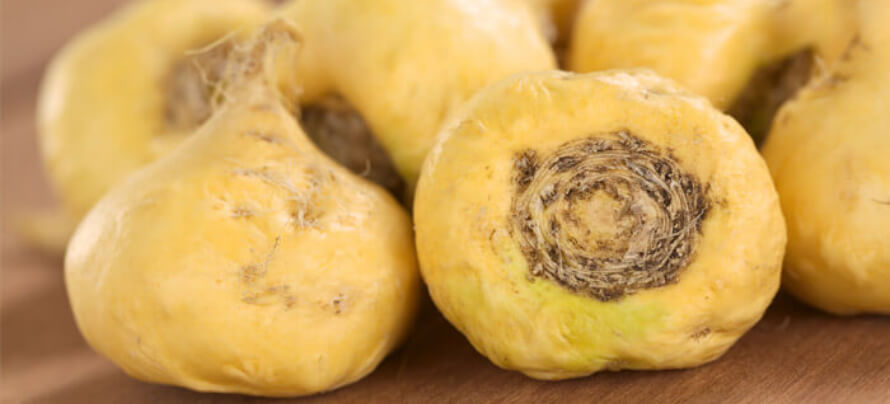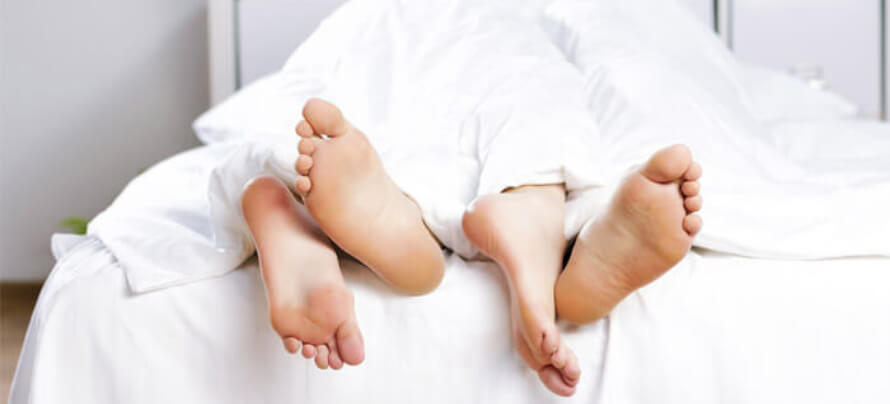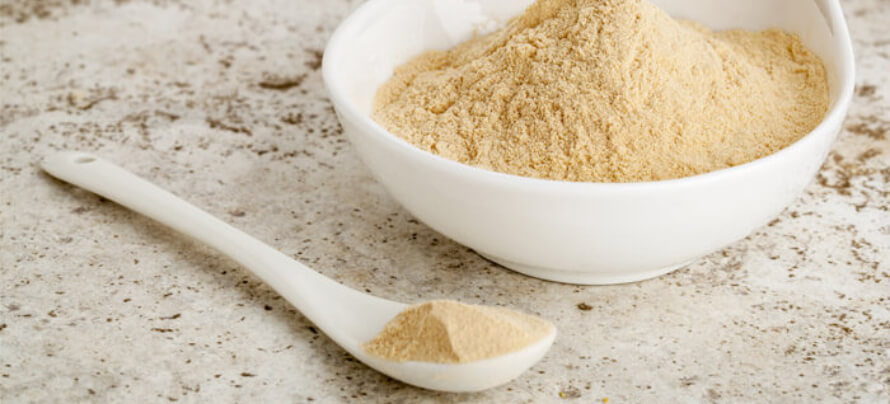Key Takeaways
- Maca is a vegetable supplement that can increase libido and mood in both men and women.
- It has no impact on testosterone or estrogen levels and doesn’t improve exercise performance.
- The clinically effective dosage for increasing libido is 3 grams per day.
When it comes to improving libido, most research is done on men.
This isn’t overly surprising, since men are more likely to go out and actually buy the coveted “boner pills.” There are also more pharmaceutical options for improving men’s libido and sex.
Viagra was originally tested for heart health and blood flow, but after scientists found out it improved erections, it’s made Pfizer billions.
So when you hear of a supplement like maca that’s specifically marketed for increasing libido in women, it’s interesting. Even more interesting when it’s wholly unrelated to testosterone or estrogen (both of which increase libido in women.)
Maca is the last thing you’d expect to improve sexuality. It looks like some sad turnip from the Peruvian mountains and it’s not even used in any forms of traditional medicine.
You may have heard of maca being advertised for improved libido, female health, and improved cognitive health during menopause, but how do these claims stack up to the evidence?
The short answer is surprising well.
Let’s start at the top.
- What Is Maca?
- What Does Maca Do?
- The Top 2 Maca Benefits
- What Does Maca Not Do?
- What Is the Clinically Effective Maca Dosage?
- What Are the Most Common Maca Side Effects?
- Should You Take Maca Supplements?
- The Bottom Line on Maca
Table of Contents
+What Is Maca?

Maca (Lepidium meyenii) is a plant that’s closely related to cruciferous vegetables (broccoli, kale, etc.), that’s grown also exclusively in mountainous regions of Peru.
It’s sometimes called Peruvian ginseng, which much like American ginseng (Panax quinquefolius) is a bastardization of the word ginseng. “Ginseng” should normally refer just to the plant Panax ginseng but the term is used for many unrelated plants.
In retrospect, before people came up with the term “adaptogen” anything that acted like it was simply called a ginseng—even ashwagandha was (and sometimes still is) called Indian ginseng.
“Adaptogens” are things that stress your body in a way that makes the body grow stronger against similar stressors in the future. Over time, exposing yourself to adaptogens reduces stress and helps your body become stronger, fitter, and more resilient.
In addition to maca, some common adaptogens include ashwagandha, rhodiola rosea, and the aforementioned panax ginseng.
Maca is grown in three varieties; black, red, and yellow. Surprisingly this isn’t that much of an issue to the consumers since they’re quite similar for the most part, just some studies here and there suggesting black is better for male fertility and red for prostate health.
For our purposes, we’re mostly interesting in maca because unlike other cruciferous vegetables this one has some noticeable benefits when eaten.
What Does Maca Do?
The benefits of maca are primarily the libido enhancement as well as general adaptogenic properties.
Maca root was, perhaps, the first supplement that was sold to younger women for the purpose of enhancing their libido that actually seemed to work.
Most previous supplements either didn’t work or were only marketed to postmenopausal women, whose bodies respond differently to these kinds of supplements. Due to this, maca root has become associated with women’s sexuality.
While true, it can also benefit men as well in a similar manner.
It isn’t known exactly what molecules in maca are doing these things, but most people focus on a group of fat soluble molecules called the alkamides. Lots of the particular ones in maca are unique to the plant.
Beyond that, maca is likely to carry the health benefits of other cruciferous vegetables as it contains a fair amount of glucosinolates (mostly glucotropaeolin at up to 80% total glucosinolates). Given how cruciferous vegetables are perhaps the healthiest veggies, this is nice.
In short, maca root is the peruvian adaptogen turnip of sexuality.
The Top 2 Maca Benefits

As mentioned previously, the peruvian sex turnip’s benefits are related to it’s adaptogenic claims and sexuality. Specifically they’re:
- Improved libido
- Improved mood state
Let’s go over each.
Maca Root and Libido
Maca is primarily known for helping sexual function and well being in women.
This association was borne both from how there are numerous studies conducted in women and also in part due to marketing. Libido enhancers and sexual aids are a mostly male dominated market and maca was the first to capitalize on the fact that women like sex too.
Despite being known as the female sexual aid due to having studies in women (like fenugreek also does), maca can also help men.
In men with mild erectile dysfunction, maca was found to be more effective than placebo in restoring erectile function and libido. These men also saw increased sexual desire which, according to other studies, can occur in men without erectile dysfunction as well as women.
Even in the instance of SSRIs, antidepressants that are known to cause sexual dysfunction in some users, using maca can help restore the lost sexuality that came from SSRI usage. Note that these studies used maca alongside the SSRI so you may not need to discontinue the SSRI (which is good).
Maca root seems to have wide-spread benefits when it comes to sexuality, improving libido and sexual wellness in every situation and demographic it has been tested in for men and women.
Maca Root and Mood
Maca may have some influence on mood state, in particular depression and anxiety.
Two studies have been conducted in postmenopausal women where maca, between doses of 3.3 to 3.5 grams a day for a few weeks, have resulted in less depressive moods relative to placebo. This may be unique to older women however, as young men have no significant change in depression as measured by self-report.
The above studies, all three, also measure anxiety levels and find them changing alongside depressive symptoms—older women can see a reduction in symptoms and stabilization of their mood while younger men with no cognitive abnormalities are unaffected.
There are still a lot more studies needed to test out just how far these benefits can go.
Maca root may be able to help stabilize mood in postmenopausal women. It’s uncertain as to whether this applies to younger women or people (of both sexes) with mood abnormalities.
What Does Maca Not Do?
Our beloved peruvian sex turnip fails on the following parameters:
- It doesn’t appear to influence any hormones, for better or worse.
- The adaptogenic properties do not appear strong enough for exercise.
Maca Root and Hormones
Among all herbal supplements and adaptogens that influence libido, maca root is known as unique since it has quite a bit of evidence to show that it doesn’t influence hormones.
Whether we’re talking about hormones that have a direct impact on behavior, bodily function, and mood like estrogen and testosterone, or ones that act in more indirect ways like follicle-stimulating hormone (FSH) and luteinizing hormone (LH), maca root simply has no effect on their levels. None.
Which is strange considering how much maca affects mood and libido.
Furthermore, even the hormone prolactin as well as sex-hormone binding globulin (SHBG, involved in activating some hormones) are both unaffected. Thyroid stimulating hormone (TSH) is unaffected, just for good measure.
This applies to both men and women as maca root doesn’t affect the sex hormones of either sex, even when libido is enhanced. The libido enhancing properties seem to be wholly unrelated to anything hormonal.
Maca root doesn’t appear to influence any hormone involved in libido or any hormone typically known to be associated with male or female traits and mannerisms.
Maca Root and Exercise Capacity

Traditionally, maca has not only been recommended for sexuality but also for vitality in general. This had led to the idea that it can help with exercise.
There’s only been one test on this claim so far, but supplementation of maca root in athletes (trained cyclists) was able to exert some benefit by reducing cycling time on a 40 km test but ultimately failed to be significantly better than placebo.
There doesn’t appear to be any more evidence on this topic, which is a bit of an oddity. Normally you start with studies on newbie athletes and then focus on the pros, but in this case, they started with the pros and completely ignored the newbies.
Maca doesn’t currently have any evidence to support an improvement in physical performance, but oddly has only been tested in elite athletes. More evidence is required.
What Is the Clinically Effective Maca Dosage?
Maca root is usually taken at a dose of 3 grams once a day.
Half that dose (1.5 grams per day) seems to be ineffective for improving sexuality. Specifically, it negates the negative effects of antidepressants on libido. While it doesn’t need to be taken with a meal it’s advise to do so.
Legion’s Genesis contains 1.5 grams of 4:1 maca, meaning that it’s concentrated four fold. This provides enough alkylamides to be equivalent to 6 grams of maca root per scoop.
What Are the Most Common Maca Side Effects?
At this moment in time, maca doesn’t appear to have caused any side effects in scientific studies. This includes the studies where maca was used alongside antidepressants.
While there isn’t enough evidence conclude that maca is entirely safe, it does appear to be quite low risk when compared against other supplements.
Should You Take Maca Supplements?
I’d recommend at least trying maca once to see if you notice any positive effects, even if you aren’t interested in improving your love life.
Chances are good that you’ll notice improved sexual well being, meaning not only libido but also satisfaction from sexual encounters. There may also be an improvement in mood overall.
The idea of combining a cruciferous vegetable with an adaptogen is quite enticing, and while maca may not have the most evidence it has a decent amount.
As for people who should beeline straight for maca? Above all else it would be women with sexual dysfunction as maca is the first-line supplemental option to try and help fix said sexual dysfunction (like loss of libido from antidepressants or stress).
But I do think most people could benefit from it, even if it just makes you feel a bit nicer.
The Bottom Line on Maca

Maca root is an adaptogen that can also help improve libido.
And in this capacity, it does very well. Studies show that maca is effective for improving libido, mood, and satisfaction after sex in both men and women.
It even has some evidence to suggest it can mitigate the sexual side-effects of antidepressants without interfering with the antidepressant itself.
Maca can also improve mood and the sense of general wellbeing.
For these reasons, it’s one of the healthiest natural libido enhancers.
These benefits to libido occur without any hormones being affected, which is an upside to some and a downside to others. Its adaptogenic effect also doesn’t seem to be strong enough to influence physical performance.
While taking 1.5 grams of maca root may be a bit too little, 3 grams is the ideal dose. Legion Genesis provides 1.5 grams of a 4:1 concentration, equivalent to 6 grams of maca—you might not need a double dose, but there are no side effects and many people like it.










